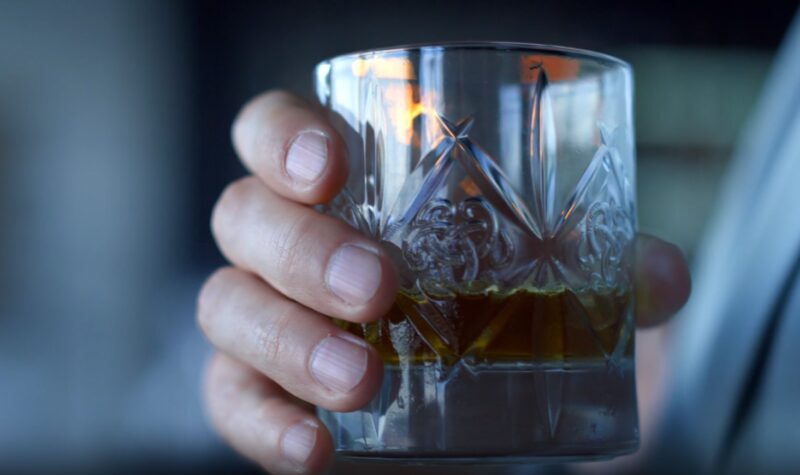Kidney stones, which are hard deposits that form in the kidneys, can lead to severe pain and other health issues. The effect of alcohol on these stones depends on the amount and type of alcohol consumed, along with individual health conditions and lifestyle habits.
Key Takeaways
-
Moderation in alcohol and a balanced diet are crucial in preventing and managing kidney stones.
-
Staying hydrated and seeking appropriate medical treatment can significantly aid in recovery from kidney stones.
Is There a Connection Between Kidney Stones and Drinking Alcohol?

Determining whether alcohol directly causes kidney stones requires examining how alcohol interacts with the body’s processes that contribute to stone formation.
Alcohol’s effects on the body are complex and can influence kidney stone risk in several ways, both increasing and potentially decreasing the risk depending on various factors.
Can Alcohol Cause Kidney Stones?
The direct causation of kidney stones by alcohol is not straightforward. Alcohol itself does not create kidney stones; however, its consumption can influence factors that are known to contribute to stone formation. For example:
- Dehydration: Alcohol’s diuretic effect can lead to dehydration, a primary risk factor for kidney stone formation. Dehydrated states concentrate urine, increasing the likelihood of mineral deposits crystallizing into stones.
- Uric Acid Levels: Alcohol, particularly beer, can raise uric acid levels in the body. Elevated uric acid can lead to the formation of uric acid stones, one of the common types of kidney stones.
- Calcium Excretion: There is some evidence to suggest that heavy alcohol consumption may increase calcium excretion in the urine, which could contribute to calcium stone formation.
Excess consumption is also related to other possible kidney issues. As stated by Ryan Kelley: “Heavy drinking can, over time, increase a person’s likelihood to develop chronic kidney disease. High levels of alcohol consumption may initiate or promote cardiovascular-related risk factors for kidney disease such as high blood pressure, insulin resistance, diabetes, and excess uric acid in the blood.”
The Most Common Cause of Kidney Stones
While several factors contribute to the formation of kidney stones, the primary cause is supersaturation of urine with certain minerals that form stones, primarily calcium in combination with oxalate or phosphate.
Supersaturation of Urine
The process of kidney stone formation begins when the urine contains more crystal-forming substances, such as calcium, oxalate, and uric acid, than the fluid in the urine can dilute. This condition, known as supersaturation, is the fundamental cause behind the formation of most kidney stones.
Supersaturation leads to the nucleation, growth, and aggregation of crystals, which eventually form stones.
Alcohol consumption, particularly in excessive amounts, can exacerbate urine supersaturation by promoting dehydration, which concentrates urine and increases the risk of crystal formation.
Calcium Stones
Calcium stones, the most prevalent type of kidney stones, are primarily composed of calcium oxalate. Oxalate is a substance found in many foods, and its levels in the urine can be increased by high doses of vitamin D, dietary choices, and various metabolic disorders.
Calcium phosphate stones are another type of calcium stone, often caused by metabolic conditions, such as renal tubular acidosis, and can also form in alkaline urine.
Alcohol, especially when consumed in large quantities, can affect calcium and oxalate levels in the urine, potentially contributing to the formation of calcium oxalate stones due to its diuretic effect and impact on mineral balance.
Uric Acid Stones
Uric acid stones form when the urine is consistently acidic. A diet high in purines—substances found in animal proteins—can increase levels of uric acid in the urine. When uric acid becomes too concentrated, it can crystallize, forming stones.
This type of stone is a vivid example of how dietary intake directly influences the chemical composition of urine and the formation of kidney stones.
Alcohol, particularly beer, which is high in purines, can raise uric acid levels in the urine, thereby increasing the risk of uric acid stone formation.
How to Prevent Kidney Stones? [And Still Enjoy Your Favorite Drink]
Preventing kidney stones doesn’t have to mean giving up your favorite alcoholic beverages entirely. With moderation and mindful consumption, it’s possible to enjoy drinks while minimizing the risk of stone formation.
Stay Hydrated
The cornerstone of kidney stone prevention is adequate hydration. Drinking plenty of fluids helps dilute the substances in urine that lead to stones. Aim for at least 2 to 2.5 liters of water daily.
If you enjoy alcoholic beverages, follow each drink with a glass of water to counteract the diuretic effect and maintain hydration.
Moderate Alcohol Consumption
Moderation is key when it comes to alcohol. Limiting intake to one or two drinks per day can help manage the risk of kidney stones.
Lighter alcoholic options, such as wine, may be preferable due to their lower purine content compared to beer and spirits, which can increase uric acid levels.
Balance Your Diet
A balanced diet can significantly reduce the risk of kidney stones. Include foods rich in calcium and low in oxalate. While it might seem counterintuitive, dietary calcium can help bind oxalate in the intestines, preventing it from reaching the kidneys.
Reduce your intake of high-oxalate foods like spinach, beets, and nuts if you’re prone to calcium oxalate stones.
Limit High-Purine Foods
For those at risk of uric acid stones, limiting the intake of high-purine foods is crucial. Purines are found in red meat, organ meats, and some fish, and they can increase uric acid levels.
Balancing your diet with vegetables, fruits, and whole grains can help maintain healthy uric acid levels.
Monitor Salt and Protein Intake
Excessive salt and animal protein can increase the risk of kidney stones. Salt can increase calcium excretion in urine, while animal protein can raise uric acid levels and lower urine pH.
Opt for low-salt options and balance your protein intake with plant-based sources.
Regular Exercise
Maintaining a healthy weight through regular exercise can reduce the risk of kidney stones. Obesity is linked to an increased risk of stone formation, partly due to changes in urine composition. Exercise helps manage weight and supports overall kidney health.
Consult Your Doctor
If you have a history of kidney stones or are at high risk, consulting with a healthcare provider is essential. They can offer personalized advice based on your health profile, including recommendations on alcohol consumption and dietary adjustments.
It is important to learn more about common symptoms so that you can act on time and prevent bigger issues.
Is There a Way to Successfully Recover From Kidney Stones?

Recovering from kidney stones is not only possible but also highly probable with the right approach to treatment and lifestyle adjustments.
Get the Right Treatment
The first step in recovery involves the management of symptoms and facilitating the passage of the stone. Treatments vary based on the stone’s size and type:
- Pain Management: Over-the-counter pain relievers like ibuprofen or acetaminophen can alleviate mild pain, while more severe cases may require stronger prescription medications.
- Alpha-blockers: Medications such as tamsulosin can relax the muscles in the ureter, making it easier for the stone to pass.
- Fluid Intake: Increasing water consumption to 2 to 3 liters a day helps flush the urinary system and aid in stone passage.
- Medical Procedures: Larger stones that cannot pass on their own or cause infection, bleeding, or ongoing urinary problems may require more invasive treatments. These include shock wave lithotripsy (SWL), ureteroscopy, or percutaneous nephrolithotomy.
Proper Diet
Diet plays a crucial role in both recovery and prevention of future stones:
- Calcium Intake: Contrary to popular belief, adequate dietary calcium can prevent certain types of stones by binding with oxalate in the gut.
- Reduce Oxalate-Rich Foods: Limiting foods high in oxalates (e.g., spinach, rhubarb, and almonds) is advised for those prone to calcium oxalate stones.
- Limit Salt and Animal Proteins: Reducing salt intake and consuming a balanced amount of animal proteins can decrease the risk of stone formation.
- Stay Hydrated: Maintaining a high fluid intake is essential to prevent the urine from becoming too concentrated with stone-forming minerals.
Change Some Habits
Lifestyle changes are integral to recovery and prevention:
- Weight Management: Achieving and maintaining a healthy weight can reduce the risk of stone formation.
- Exercise: Regular physical activity can help prevent stones by maintaining healthy blood pressure and weight.
- Avoid Excessive Caffeine: Large amounts of caffeine can dehydrate the body, so moderation is key.
FAQs
Does walking help pass kidney stones?
Walking can help pass kidney stones by increasing blood flow and fluid intake, which may help the stone move along the urinary tract. However, walking alone may not be enough to expel a large or stubborn stone, and medical intervention may be needed.
What can destroy a kidney stone?
There are different methods to destroy a kidney stone, depending on its size, location, and composition. Some common methods are:
- Extracorporeal shock wave lithotripsy (ESWL), which uses sound waves to break the stone into smaller pieces that can be passed in the urine.
- Ureteroscopy, which involves inserting a thin tube with a camera and a laser or other device to remove or break the stone inside the ureter or kidney.
- Percutaneous nephrolithotomy (PCNL), which is a surgical procedure that makes a small incision in the back and uses a special instrument to remove the stone from the kidney.
Are eggs bad for kidney stones?
Eggs are not necessarily bad for kidney stones, but they are high in protein, which can increase the risk of forming certain types of stones, such as uric acid and calcium oxalate stones.
Therefore, people who are prone to kidney stones should limit their intake of eggs and other animal proteins, and balance them with foods rich in calcium and fluids.
Does Coca cola break up kidney stones?
There is no scientific evidence that Coca cola can break up kidney stones. Some people believe that the phosphoric acid in Coca cola can dissolve calcium-based stones, but this has not been proven in clinical studies. In fact, drinking too much Coca cola or other soft drinks may increase the risk of kidney stones, as they are high in sugar and sodium, and can cause dehydration.
The Bottom Line
Dealing with kidney stones boils down to a few straightforward practices: watch what you drink and eat, stay properly hydrated, and don’t overdo it with alcohol.
If kidney stones do become a problem, there’s a good chance of getting through it with the right medical help and some changes in diet and lifestyle. It’s all about moderation, smart choices, and keeping up with your health to prevent stones from forming again.
